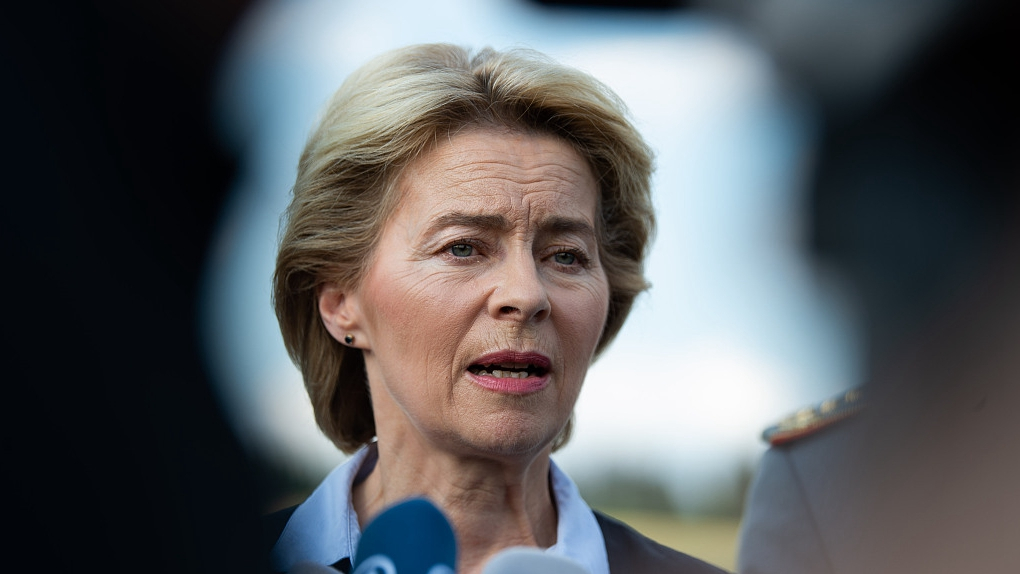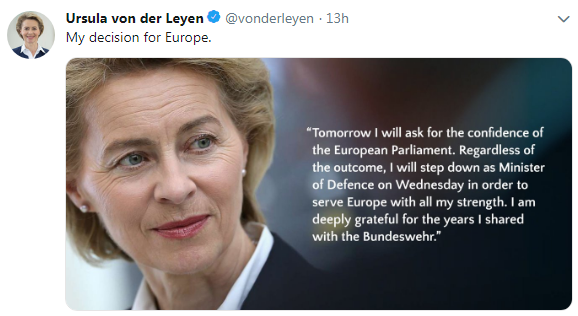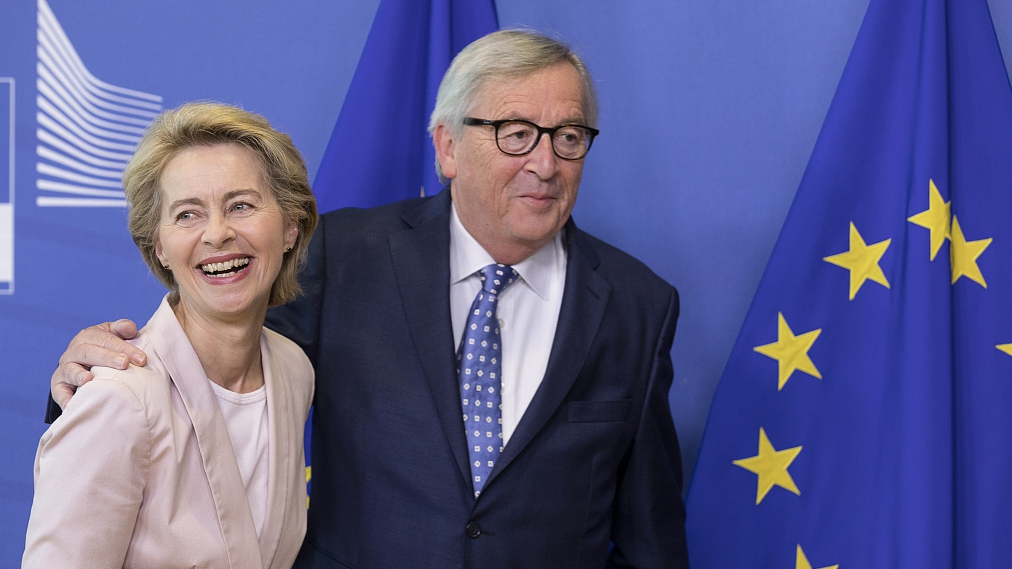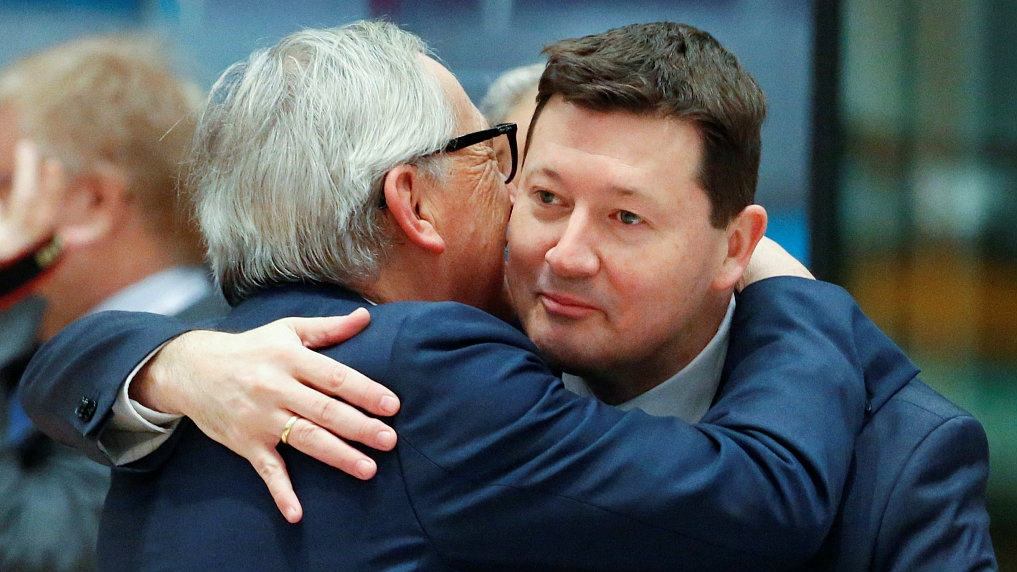

The European Union top job package faces a make-or-break test on Tuesday when the European Parliament will decide whether the nominee for European Commission presidency, Ursula von der Leyen, has its support.
Von der Leyen, who will quit as Germany's defense minister no matter the result of Tuesday's vote, was selected by EU leaders but cannot take the helm of the powerful EU executive without the backing of an absolute majority of the 751-member legislature.

Twitter Screenshot
The parliament, more fractured than ever before after May's bloc-wide elections, is far from certain to vote in favor of the 60-year-old conservative, who would be the first woman to head the Commission if confirmed.
While von der Leyen can be confident of the support of the 182 European People's Party members, she will need to find a further 192 votes to be elected – a total of 374 are needed, as the parliament is currently four members short.
Personal background
Political background
A number of the 153 Progressive Alliance of Socialists and Democrats and 108 Renew Europe MEPs have expressed doubts about the German, who attempted to win over the skeptics on Monday with a series of pledges designed to address the demands of both groups.
Von der Leyen's promises included a plan to set an EU-wide minimum wage, toughen targets on climate change and tax the big tech industry. She also indicated that she would be willing to extend the existing October 31 Brexit deadline, if Britain requested such a move.

Nominee for the presidency of the European Commission Ursula von der Leyen is welcomed by the outgoing president Jean-Claude Juncker (R) in Brussels, Belgium, July 4, 2019. /VCG Photo
The nominee also said she would work "to improve" the Spitzenkandidat process, the lead candidate system designed to make the selection of the EU leadership more democratic which was abandoned with her candidacy.
She also indicated Martin Selmayr, the influential German who serves as European Commission secretary-general, would be replaced under her leadership. Selmayr ran outgoing Commission President Jean-Claude Juncker's 2014 campaign and served as his chief of staff, before a controversial promotion to be the EU executive's top civil servant.

European Commission President Jean-Claude Juncker (L) embraces Secretary-General Martin Selmayr during a European Union leaders summit in Brussels, Belgium, March 22, 2019. /VCG Photo
Von der Leyen, who is the subject of an ongoing investigation into her time in charge of Germany's defense ministry, is expected to face a tight vote despite attempts to counter concerns about her record and the manner of her nomination.
If she is rejected by the parliament, the EU member state leaders will have to go back to the drawing board in the search for a candidate – the current package was only settled upon after a series of painstaking, late-night negotiations.
Von der Leyen will make a speech at the start of the debate on her nomination on Tuesday morning at the Strasbourg parliament, with a secret ballot scheduled for 16:00 GMT.

Copyright © 2018 CGTN. Beijing ICP prepared NO.16065310-3
Copyright © 2018 CGTN. Beijing ICP prepared NO.16065310-3